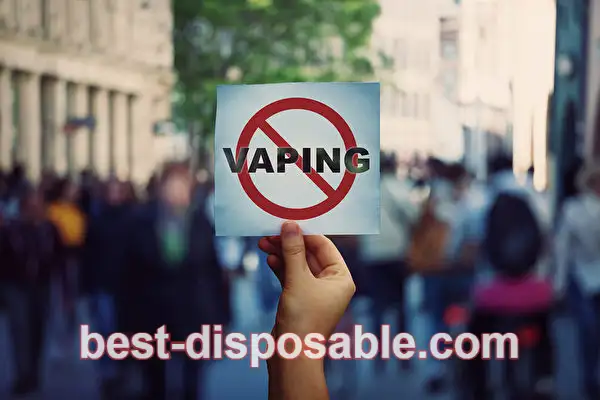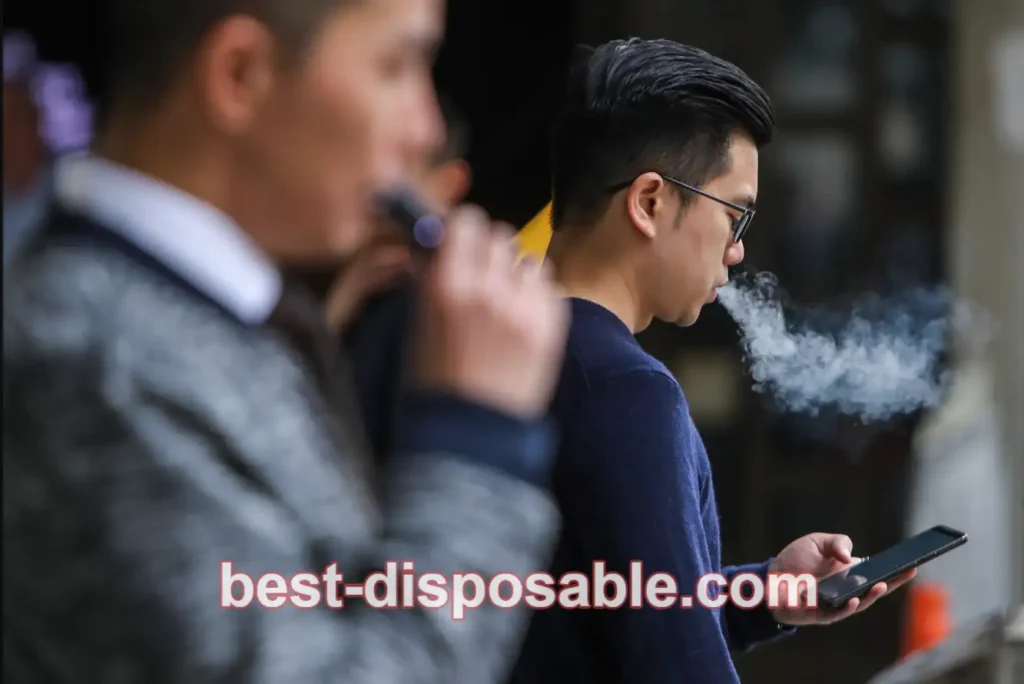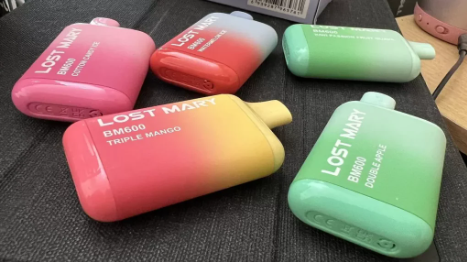On February 18, South Korea’s ongoing efforts to tighten regulations on vape products faced a significant setback as the country’s National Assembly failed to pass a major amendment to its Tobacco Business Act. The proposed change, which would have classified vapes made with synthetic nicotine as “tobacco” and subjected them to the same stringent regulations as traditional cigarettes, was initially blocked during a legislative review on February 10. However, reports on February 17 revealed that the ruling and opposition parties were close to reaching an agreement, raising the likelihood of the law’s eventual passage.

The amendment would have broad implications for vape products that use synthetic nicotine, which is increasingly popular among users due to its ability to deliver nicotine without relying on tobacco leaves. The proposal, backed by South Korea’s Ministry of Economy and Finance, seeks to apply the same kind of regulation to synthetic nicotine vapes that is already in place for conventional tobacco. This includes advertising restrictions, mandatory health warning labels, and limits on online sales. The goal? To curb rising concerns over teen vaping, especially as flavored e-cigarettes continue to gain traction.
Despite the delay in the legislation, many are closely watching as the parties involved work to hammer out a deal that could soon reshape the country’s vape market. The proposed amendment’s core issue is simple: expanding the legal definition of tobacco to include nicotine, specifically synthetic nicotine. Right now, synthetic nicotine vapes are not classified as tobacco, which means they are free from the tobacco taxes, health regulations, and other restrictions that apply to traditional cigarettes. But that’s about to change if the revision moves forward.
A Tough Road Ahead for Vape Producers
Synthetic nicotine products have grown in popularity globally, and South Korea is no exception. These vapes, which often come in a wide range of appealing flavors, have sparked a debate over their safety and long-term effects, particularly on younger users. Since synthetic nicotine isn’t derived from tobacco leaves, it currently sits outside the regulatory framework that governs traditional tobacco products, allowing it to slip under the radar in many ways. That’s all set to change if this legislation passes.

The current system means synthetic nicotine vape products don’t need to pay the hefty tobacco taxes that are imposed on cigarettes. They also bypass several age-restriction rules and regulations on where and how they can be marketed. This loophole has led to growing concerns, particularly from educators and public health officials, who argue that flavored vapes are reaching children and teenagers—some of whom may not even know they are consuming nicotine.
The proposed bill seeks to address these issues by defining synthetic nicotine as “tobacco,” which would bring vapes under the same regulatory umbrella. This means that the same rules that apply to traditional cigarettes, including restrictions on advertising, labeling, and selling near schools, would also apply to synthetic nicotine vapes. Additionally, the amendment proposes implementing taxes on vapes, starting at about 3,275 South Korean won (roughly $2.50 USD) per pack, the same rate that applies to conventional cigarettes.
Why the Delay? Political Gridlock in the National Assembly
Despite the urgent need to regulate synthetic nicotine, the bill has faced strong opposition in South Korea’s National Assembly. In the latest development, the government’s proposal was blocked during a February 18 review session by the Economic and Fiscal Committee, with political leaders citing unresolved disagreements between the ruling party and the opposition. According to Song Yeon-seok, the chairperson of the Finance Committee, the discussions over the Tobacco Business Act have been “unproductive” due to a lack of consensus on key points.
Song’s comments highlighted the ongoing friction between political factions, with both sides keen to push their own agendas regarding the vape tax and its impact on small businesses. The ruling party has been advocating for stronger regulations to curb teen vaping, while the opposition is concerned that the proposed amendments could hurt small vape shops by imposing higher taxes too quickly.
Interestingly, one of the compromises on the table is a temporary tax relief for smaller vape merchants. Initially, the tax on synthetic nicotine vapes would be set at 3,275 won per pack, but for the first two years, small businesses would only be required to pay 1,800 won per pack. This move is aimed at easing the transition for local retailers and preventing them from being pushed out of the market. Still, critics argue that such measures are more of a “special favor” for certain companies rather than a well-balanced approach to regulating the industry.
A Closer Look at the Proposed Measures
The proposed revisions would not only define synthetic nicotine as a form of tobacco, but also apply new restrictions to its sale and distribution. For example, the proposal includes measures to restrict the sale of vapes around schools. The new law would mandate that vape shops be located at least a certain distance away from schools, preventing them from setting up in areas with a high concentration of minors.

Additionally, the proposal calls for a ban on the sale of vapes via automatic vending machines and online stores. This has been one of the most contentious points of the proposal, as online sales of vapes have surged in recent years, creating an unregulated gray market. The government argues that banning these sales methods would make the process of purchasing vapes more transparent and accountable, helping to limit access to minors.
One more significant aspect of the bill involves local government involvement in regulating illegal vape sales. The government has indicated it may add provisions requiring local authorities to step up investigations into illegal vape sales and impose fines or other penalties on violators. This would give local governments more power to clamp down on unauthorized vape sales in their areas, ensuring that vapes are only sold in regulated, licensed establishments.
What’s Next for South Korea’s Vape Legislation?
With the February 18 committee meeting failing to push the legislation forward, it seems the government and political leaders are still grappling with the best way to balance public health concerns with the realities of a booming vape market. While the ruling and opposition parties seem to agree on the need for tighter regulation, the path to passing the legislation remains uncertain. The two sides have reportedly agreed to continue discussions in hopes of reaching a new compromise, with a potential new draft expected soon.

Public health experts, including those from the Ministry of Health and Welfare, are watching closely, as they believe the legislation is a critical step in curbing youth vaping in South Korea. At the same time, the vape industry has raised concerns about the negative economic impact of the proposed tax hike, as well as the risks of driving consumers to illegal markets or unregulated online platforms.
Ultimately, the government’s goal is to regulate synthetic nicotine vapes in a manner consistent with traditional tobacco products. However, they are aware that executing these new rules could hurt the small retailers who have become a key part of the local vape industry. For now, South Korea’s vape market will continue to operate in a legal gray area, waiting for the National Assembly to work out a final, workable solution.
As lawmakers continue their discussions, many South Koreans—especially younger vape users—are holding their breath to see if their favorite flavored vapes will soon face the same strict regulations as traditional cigarettes. Whether the proposal passes or stalls further, one thing is clear: South Korea’s approach to nicotine regulation is rapidly evolving, and it’s something the global vaping community will be watching closely.


